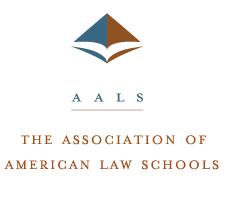
Faculty from UC Davis School of Law will have a prominent presence at the 2017 Association of American Law Schools (AALS) Annual Meeting in San Francisco this week.
Here is a list of King Hall-related faculty activities.
UC Davis School of Law Reception for Faculty, Staff, Alumni, and Friends
Thursday, January 5
6 pm - 8 pm
Powell Room, 6th Floor, Hilton
***
Programs with King Hall Speakers
**Wednesday, January 4**
Lisa Ikemoto
10:30 am - 12:15 pm
AALS ARC OF CAREER PROGRAM - Branching Out in Your Post-Tenure Career
Imperial B, Ballroom Level, Hilton
Lisa Pruitt
10:30 am - 12:15 pm
AALS DISCUSSION GROUP - Community Development Law and Economic Justice: Why Law Matters
Golden Gate 2, Lobby Level, Hilton
Chris Elmendorf
10:30 am - 12:15 pm
SECTION ON LAW AND THE SOCIAL SCIENCES - How Can Social Science Improve Judicial Decisionmaking?
Continental Parlor 2, Ballroom Level, Hilton
Alan Brownstein
1:30 pm - 4:30pm
SECTION ON LAW AND RELIGION - Is Securalism a Non-Negotiable Aspect of Liberal Constitutionalism?
Continental Parlor 9, Ballroom Level, Hilton
Angela P. Harris
1:30 pm - 3:15 pm
POVERTY LAW, CO-SPONSORED BY SECTION ON LAW, MEDICINE AND HEALTH CARE - Food Justice as Interracial Justice
Continental Ballroom 5, Ballroom Level, Hilton
Aaron Tang
3:30 pm - 4:45 pm
SECTION ON LEGISLATION AND LAW OF THE POLITICAL PROCESS - New Voices in Legislation Works in Progress
Golden Gate 8, Lobby Level, Hilton
Kevin R. Johnson
6:30 pm
Honored Guest at the Latino/a Law Professor's Dinner
Perry's Restaurant Embarcadero, 155 Steuart Street (between Mission and Howard)
**Thursday, January 5**
Leticia Saucedo
8:30 am - 10:15 am
SECTION ON LABOR RELATIONS AND EMPLOYMENT LAW, CO-SPONSORED BY IMMIGRATION LAW; BUSINESS ASSOCIATIONS; & CONTRACTS - Classifying Workers in the "Sharing" and "Gig" Economy
Golden Gate 4, Lobby Level, Hilton
Lisa Pruitt
8:30 am - 10:15 am
SECTION ON WOMEN IN LEGAL EDUCATION, CO-SPONSORED BY MINORITY GROUPS; & BALANCE IN LEGAL EDUCATION - Cultivating Empathy
Continental Ballroom 5, Ballroom Level, Hilton
Kevin R. Johnson
1:30 pm - 2:00 pm (Keynote address)
AALS COMMITTEE ON RECRUITMENT AND RETENTION OF MINORITY LAW TEACHERS AND STUDENTS - Making Room for More: Theorizing Educational Diversity and Identifying Best Practices in the Age of Fisher
Golden Gate 2, Lobby Level, Hilton
**Friday, January 6**
Madhavi Sunder
8:30 am - 10:15 am
SECTION ON INTELLECTUAL PROPERTY - Intellectual Property in Conflict or Concert with Community Values
Golden Gate 6, Lobby Level, Hilton
Anupam Chander
8:30 am - 10:15 am
SECTION ON INTERNATIONAL LAW - Implementing the Trans-Pacific Partnership: Challenges and Opportunities on the Road Ahead
Golden Gate 8, Lobby Level, Hilton
David Horton
10:30 am - 12:15 pm
SECTION ON COMMERCIAL AND RELATED CONSUMER LAW & CONTRACTS JOINT PROGRAM - Contracts, Commercial, and Consumer Law in Action
Continental Parlor 1, Ballroom Level, Hilton
Courtney Joslin
1:30 pm - 3:15 pm
SECTION ON SEXUAL ORIENTATION AND GENDER IDENTITY ISSUES - Setting the Post-Obergefell Agenda
Golden Gate 8, Lobby Level, Hilton
Darien Shanske
1:30 - 3:15pm
SECTION ON TAXATION - Fiscal Federalism: Balancing Tax Policies at the Federal, State, and Local Levels
Continental Parlor 1, Ballroom Level, Hilton
Kevin R. Johnson
1:45-3PM
Pre-tenured Law School Teachers of Color - Small Group Discussion about Scholarship
Golden Gate 4 & 5, Lobby Level, Hilton
Kevin R. Johnson
3:15 pm - 4:15 pm
PLENARY SESSION - Pre-tenured Law School Teachers of Color (Part I - Service: Challenge, Opportunity, and Passion; Part II - Teaching and Outsider Status)
Golden Gate 4 & 5, Lobby Level, Hilton
A TOAST TO LESLEY McALLISTER
5pm - 8pm
Location: UC Hastings
Details and RSVP info: http://facultyblog.law.ucdavis.edu/post/a-festschrift-for-lesley-mcallister.aspx
***
Other Faculty Roles in AALS
- Rose Cuison Villazor, Chair, Section on Minority Groups; Chair-Elect, Section on Immigration Law
- Afra Asharipour, Executive Committee Member, Section on Transactional Law & Skills; Executive Committee Member, Section on Law and South Asian Studies
- Jasmine Harris, Executive Committee Member, Section on Evidence; Executive Committee Member, Section on Law and Mental Disability
- Carlton Larson, Executive Committee Member, Section on Legal History
***
Additional Attendees from King Hall
Thomas W. Joo
Peter Lee
Evelyn Lewis
Brian Soucek
Carter "Cappy" White